Beginner’s Guide to Geocaching in the UK
Geocaching is the perfect way to get the whole family outdoors, exploring and having fun. With varying difficulty levels, it’s suitable for all ages and just as enjoyable for seasoned campers as it is for families with young children. If you're staying at one of our campsites, why not try geocaching nearby?
This guide walks you through everything you need to know about geocaching in the UK, from what it is to how to participate and the best places to go geocaching.
Skip to:
- What is geocaching in the UK?
- How to get started with geocaching
- Top geocaching locations in the UK
- Benefits of geocaching
- Geocache difficulty levels explained
- Geocache terrain levels explained
- What you need for geocaching
- Geocaching terms explained
What is geocaching in the UK?

Geocaching in the UK is a modern twist on traditional treasure hunting and orienteering. Using GPS coordinates, participants embark on exciting adventures to locate hidden 'caches' tucked away in parks, forests, towns, and countryside across the country. Whether you're a seasoned explorer or a curious first-timer, geocaching offers a unique blend of technology, outdoor exploration, and the thrill of discovery.
Interestingly, geocaching was originally known as a “GPS stash hunt” or “GPSstashing.” However, the term “stash” was thought to have negative connotations. The name “Geocaching” was suggested in the GPSstash group on eGroups (now Yahoo! Groups), and it quickly caught on. Today, geocaching is a global phenomenon, with millions of participants exploring the world one cache at a time.
How to get started with geocaching 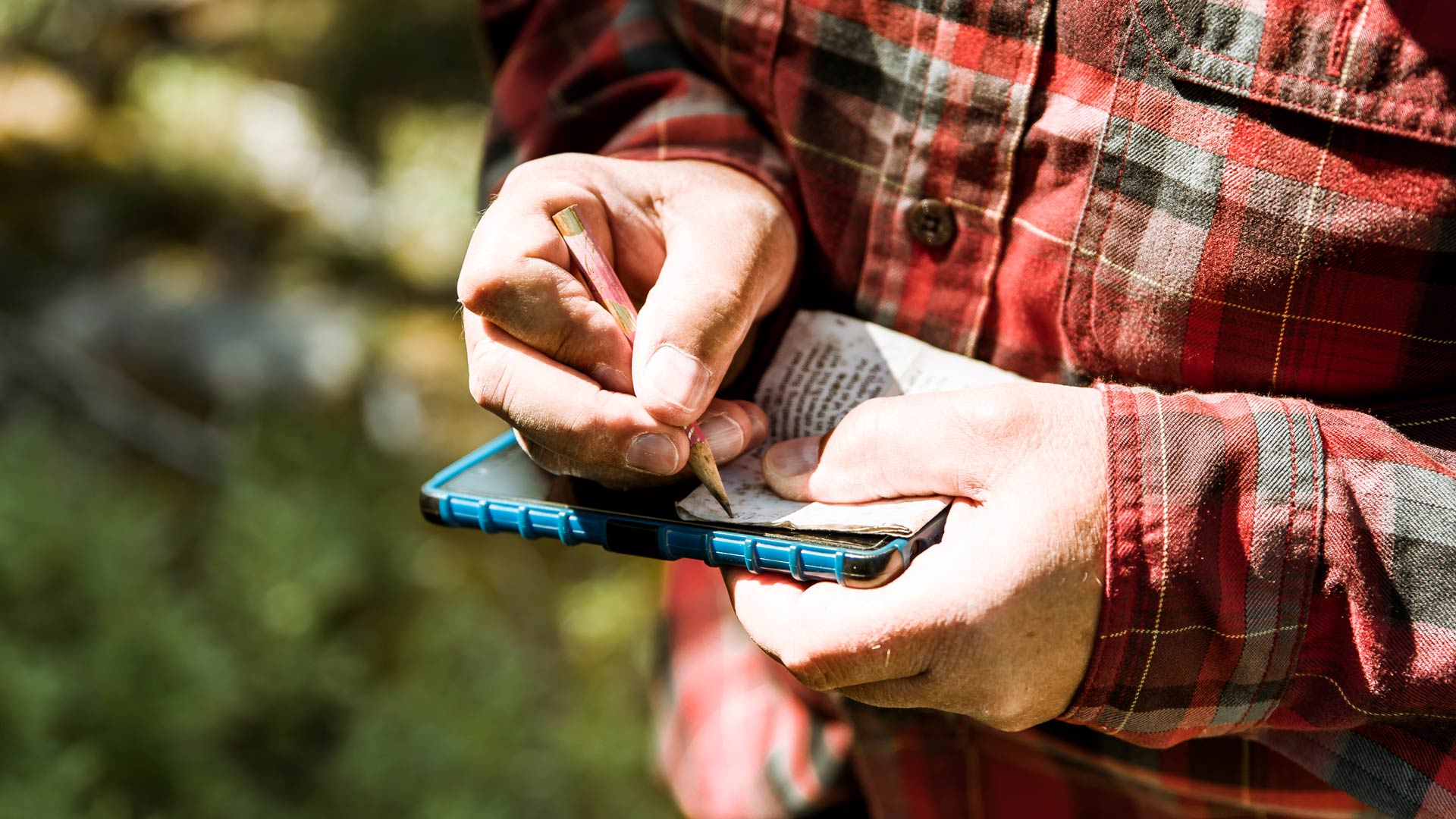
The great thing about geocaching is that it’s for everyone. Whether you’re exploring a new place with friends or looking for something fun to do with the little ones, geocaches are everywhere. Here’s a quick and easy guide to help you get started and learn how to geocache.
Step 1: Sign up on a geocaching platform
There are numerous geocaching platforms to choose from, but a popular one is Geocaching.com, which also offers a handy app that you can download to your phone. Once you’re signed up, you’ll be able to search for caches, log your finds, and join the wider geocaching community, all from your device.
Step 2: Have the right tools
You don’t need a lot of equipment to get started, but there are a few essentials that will make your adventure more enjoyable. The three main things you’ll need are:
- A smartphone with GPS (or a dedicated GPS device)
- Comfortable walking shoes or boots
- A pen or pencil to sign the logbook
For more insight into what to take with you when geocaching, see our comprehensive kit list below.
Step 3: Search for nearby caches
Using your app or the website, browse for geocaches in your area. Each cache listing includes:
- Coordinates
- Difficulty and terrain ratings
- A description and hints
- Size and type of cache
- Recent activity logs
If you’re new to geocaching and want to build your confidence, start with an easy cache in a nearby park or a familiar walking trail. These beginner-friendly caches are an excellent way to learn the basics.
Step 4: Find your first cache
Follow the app's coordinates to the location of your chosen cache. Some will be easy to spot, while others might be cleverly hidden, so take your time and search carefully!
Once you find it:
- Sign the logbook with your name and the date
- If there are items inside, you can take one as long as you leave something of equal or greater value
- Mark it as “found” in the app to track your progress.
Step 5: Return everything so the next geocacher can find it
Once you’ve logged your find, make sure to return the cache exactly as you found it. This helps preserve the experience for the next adventurer and keeps the game going.
Good geocaching etiquette includes being discreet, respecting nature, and making sure caches stay well-hidden and undamaged.
Top geocaching locations in the UK
There are thousands of geocaching trails across the UK, many of which are conveniently located near our campsites. Whether you're a seasoned geocacher or just starting, here are some of the best geocaching locations to explore.
Geocaching in the New Forest
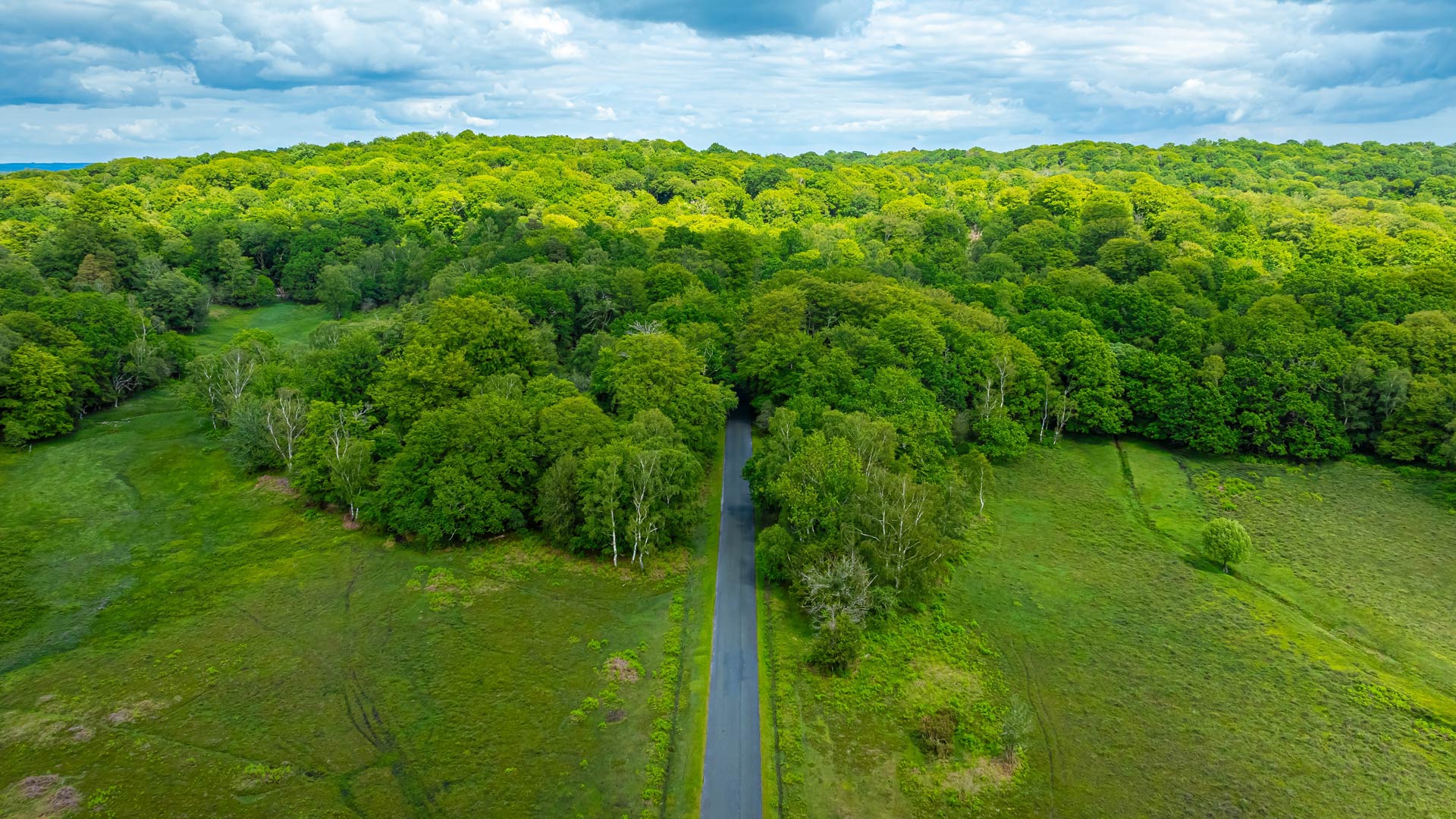
The New Forest is an ideal destination for geocaching, as it offers scenic walking and cycling routes, free-roaming ponies, and a rich variety of wildlife. Our Verwood Club Site is perfectly placed for exploring both the forest and the nearby south coast. With a vast network of trails, it's a great spot for families and nature lovers alike.
Geocaching in Cornwall
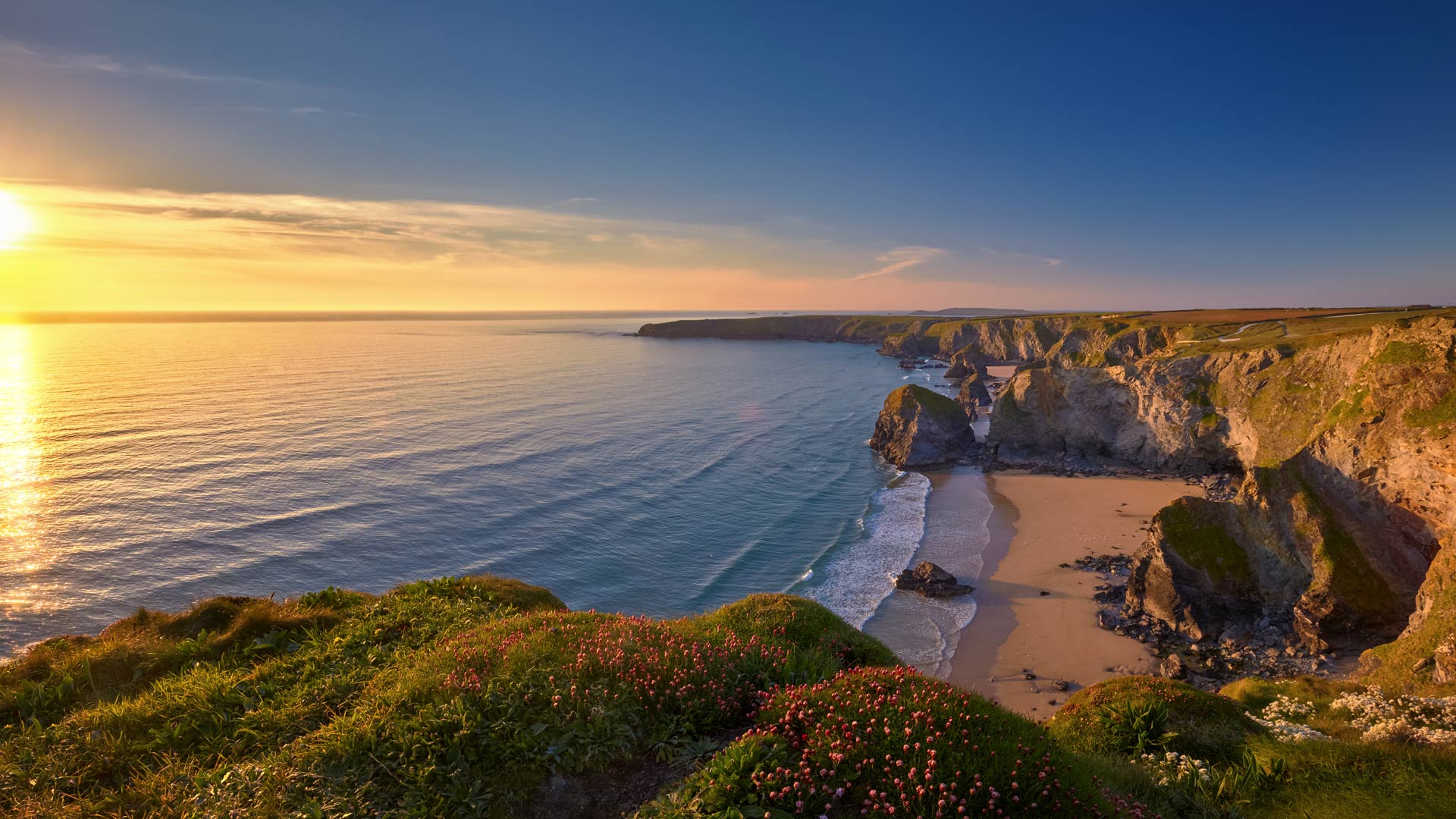
Cornwall’s dramatic coastline, charming fishing villages, and rolling countryside provide a stunning backdrop for geocaching. From clifftop paths to hidden coves, the region is packed with scenic trails and a wide variety of caches. We have two campsites in Cornwall that offer a breathtaking gateway to numerous geocaching opportunities.
- Bude Club Site is set in a peaceful location bordered by hedges, between Crackington and Boscastle. With over 350 caches in the area, it’s a fantastic spot for walkers and families alike.
- Veryan Club Site, on the Roseland Peninsula, is surrounded by quaint villages and is just 1.5 miles from the South West Coast Path. This trail alone offers over 600 geocaches, making it a hotspot for treasure hunters of all levels.
Geocaching in Northumberland
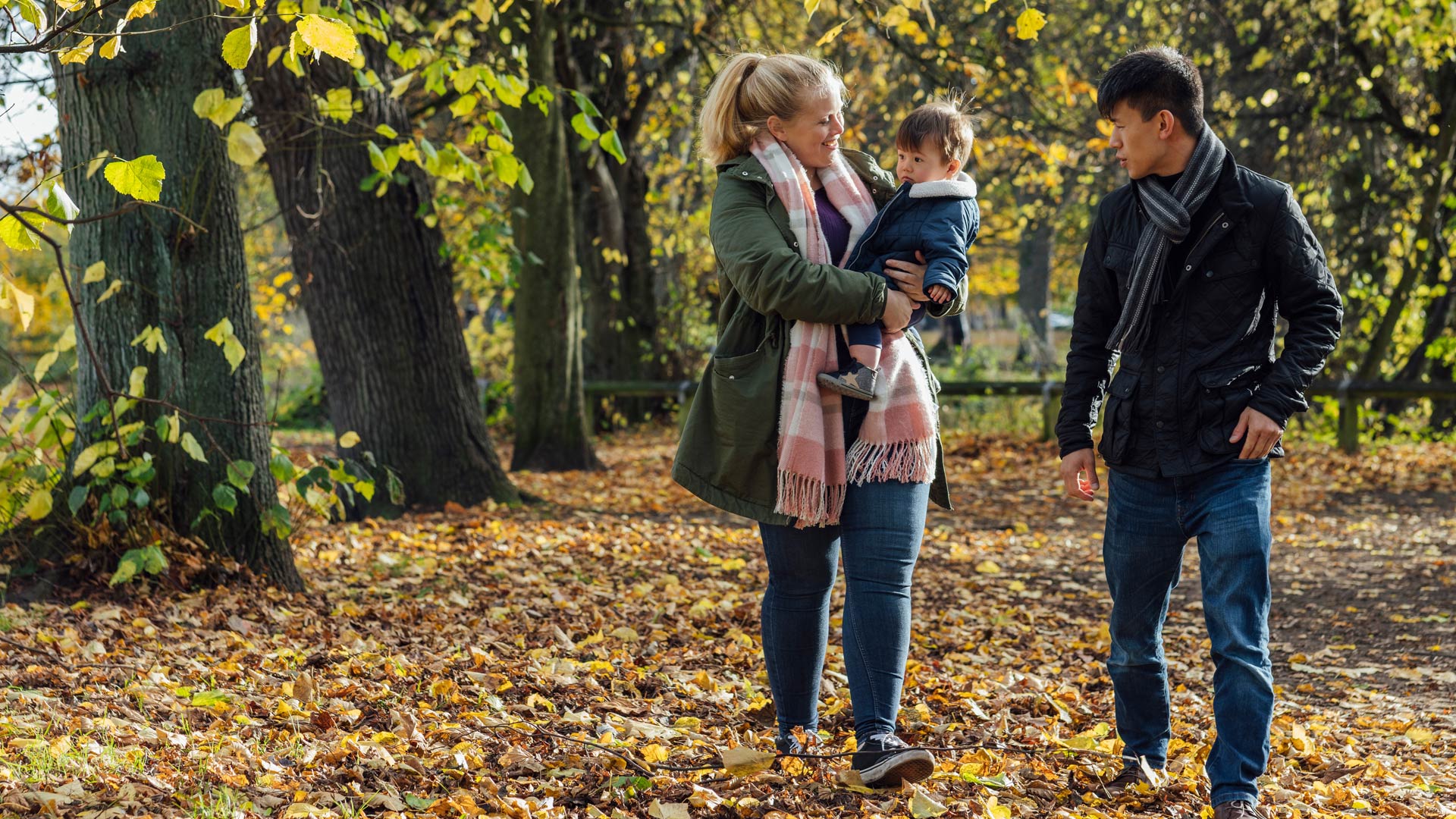
Northumberland’s Heritage Coast has over 30 miles of sandy beaches and is well-known for its historic castles and peaceful countryside. It’s a brilliant destination for geocachers who enjoy combining coastal walks with cultural landmarks.
- Beadnell Bay Club Site is a top choice for couples and nature lovers, with over 140 caches within a 10-mile radius. Enjoy sandy beach walks, wildlife spotting, and local eateries between cache hunts.
- Dunstan Hill Club Site offers a quieter experience near the iconic Dunstanburgh Castle. With over 70 caches nearby and plenty of woodland trails, it’s ideal for a relaxing yet adventurous getaway.
Geocaching in Wales
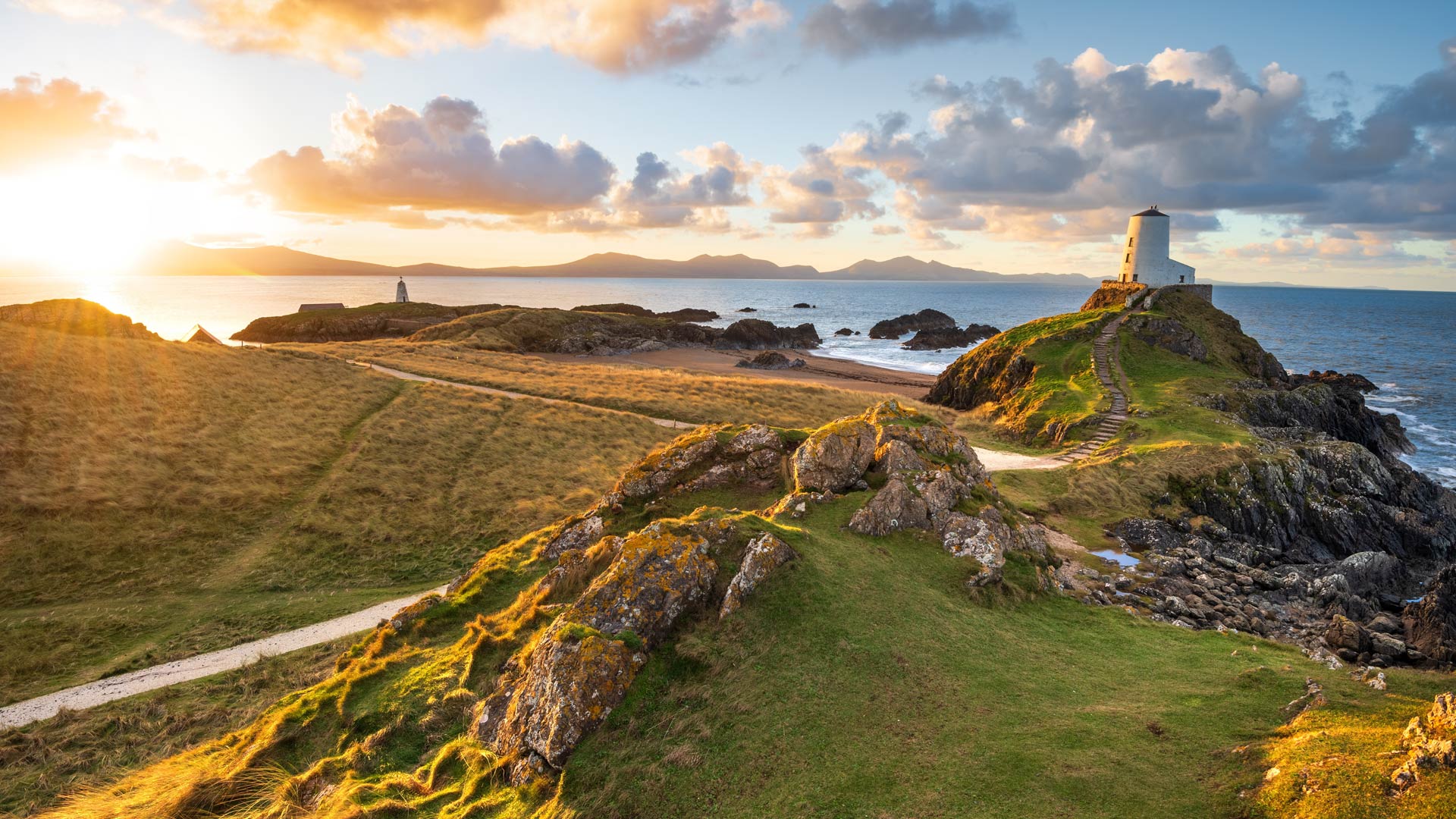
Whether you’re exploring the vibrant cities or roaming the rugged landscapes of Snowdonia National Park, Wales offers some of the best geocaching locations in the UK. From coastal paths to mountain trails, the variety of terrain makes it ideal for both beginners and experienced geocachers. Our campsites in Wales provide excellent access to a wide range of geocaching trails, making them perfect bases for your next adventure.
- Bala Club Site is located within Snowdonia National Park and just six miles from the stunning Bala Lake. With over 250 caches nearby and more than 1,500 around Snowdon itself, this site is ideal for those seeking a more challenging and scenic geocaching experience.
- Llanystumdwy Club Site, nestled between the mountains and the sea, offers breathtaking views and access to over 130 caches of varying difficulty. It’s a peaceful and picturesque base for exploring both Snowdonia and the wild beauty of the Lleyn Peninsula.
Geocaching in Suffolk
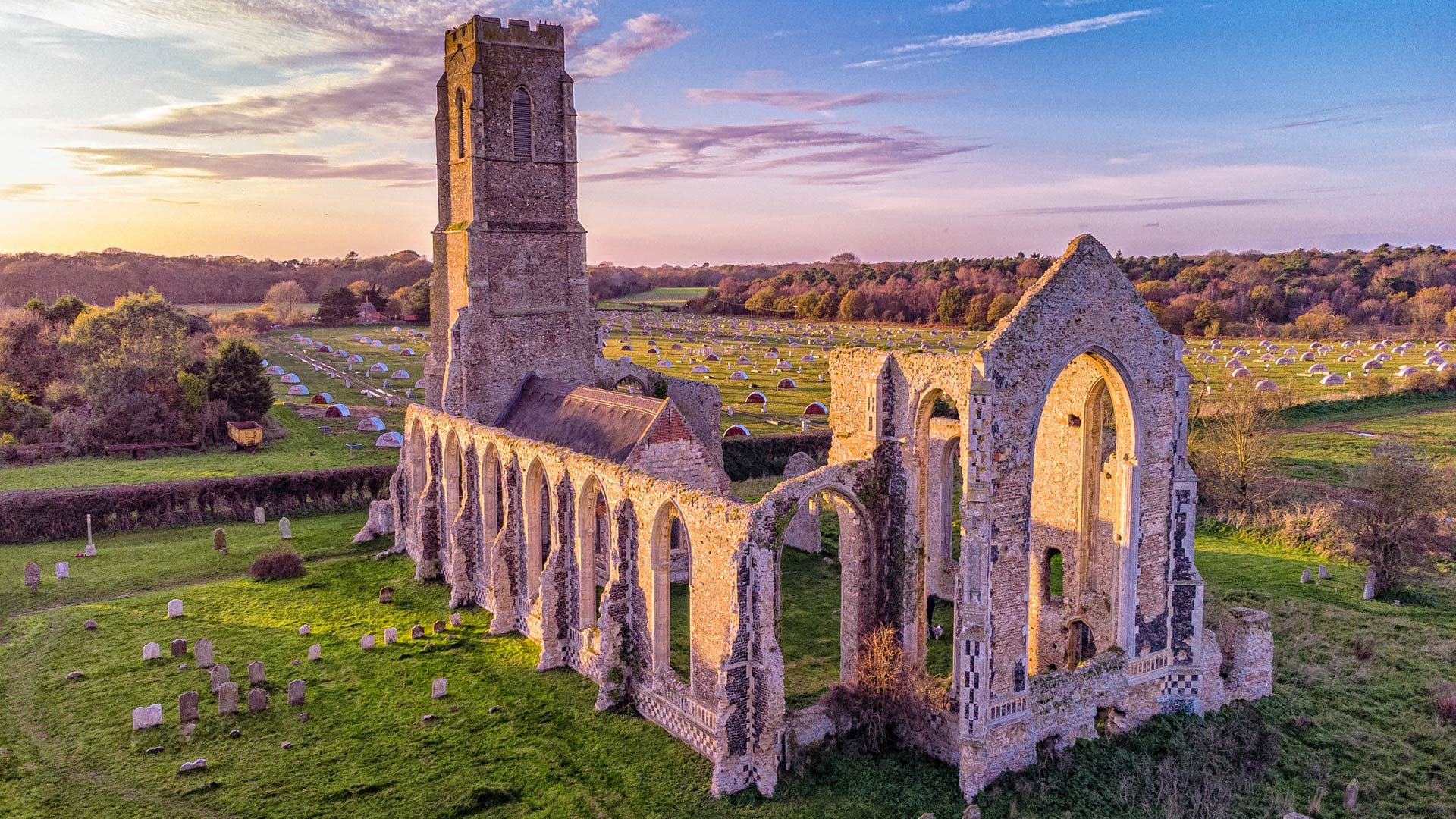
Our lovely Kessingland Club Site is an ideal location for those who plan to go geocaching in Suffolk, a popular holiday destination in the UK. There is a gorgeous sand/shingle beach just a mile and a half from the campsite, which runs into Benacre Nature Reserve and is just a 30-minute drive from the beautiful Dunwich Forest.
Geocaching in the Peak District
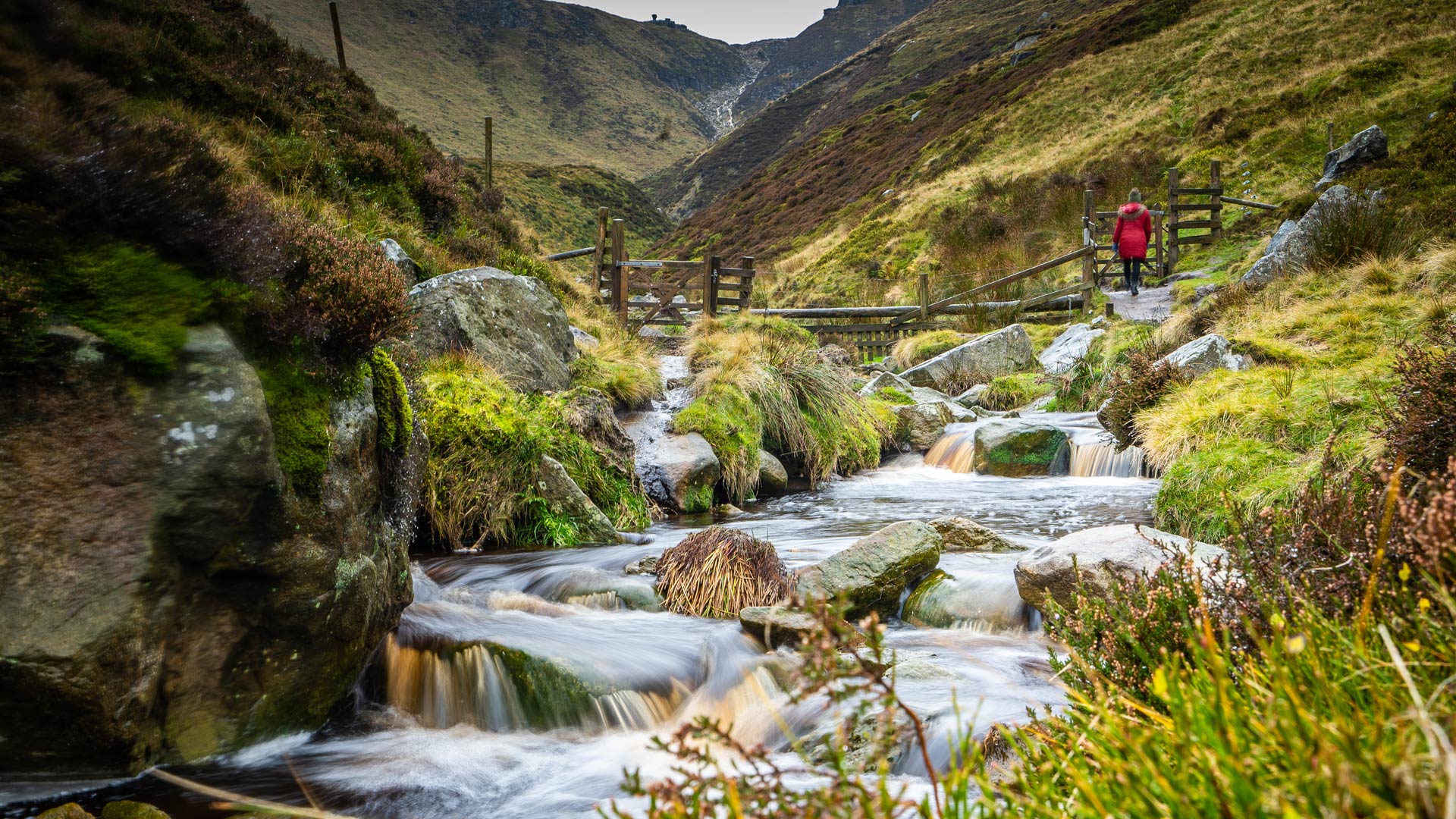
What better way to explore the Peak District than going on a treasure hunt? This stunning national park is brimming with hidden containers waiting to be discovered. With breathtaking landscapes, scenic walking routes, and an abundance of local attractions, geocaching here is both exciting and unforgettable. Our campsites in the Peak District create the perfect gateway to exploring the park and finding caches nestled in woodlands, tucked along ridgelines, or hidden near historic landmarks.
- Hayfield Club Site sits at the foot of the rolling hills and is just a 15-minute streamside stroll from the village of Hayfield.
- Bakewell Club Site offers idyllic views and easy access to some of the region's best geocaching trails, which is perfect for a peaceful morning of discovery.
Geocaching in Scotland

From cities to coastlines to mountains, Scotland offers a geocaching experience for everyone. Whether you're exploring bustling Glasgow, historic Edinburgh, or the wild beauty of Perthshire, which alone boasts over 1,000 caches, you’ll find the perfect challenge.
We have a range of stunning campsites across Scotland to suit every kind of adventurer. Check out our campsites in Scotland here.
Geocaching in the Lake District
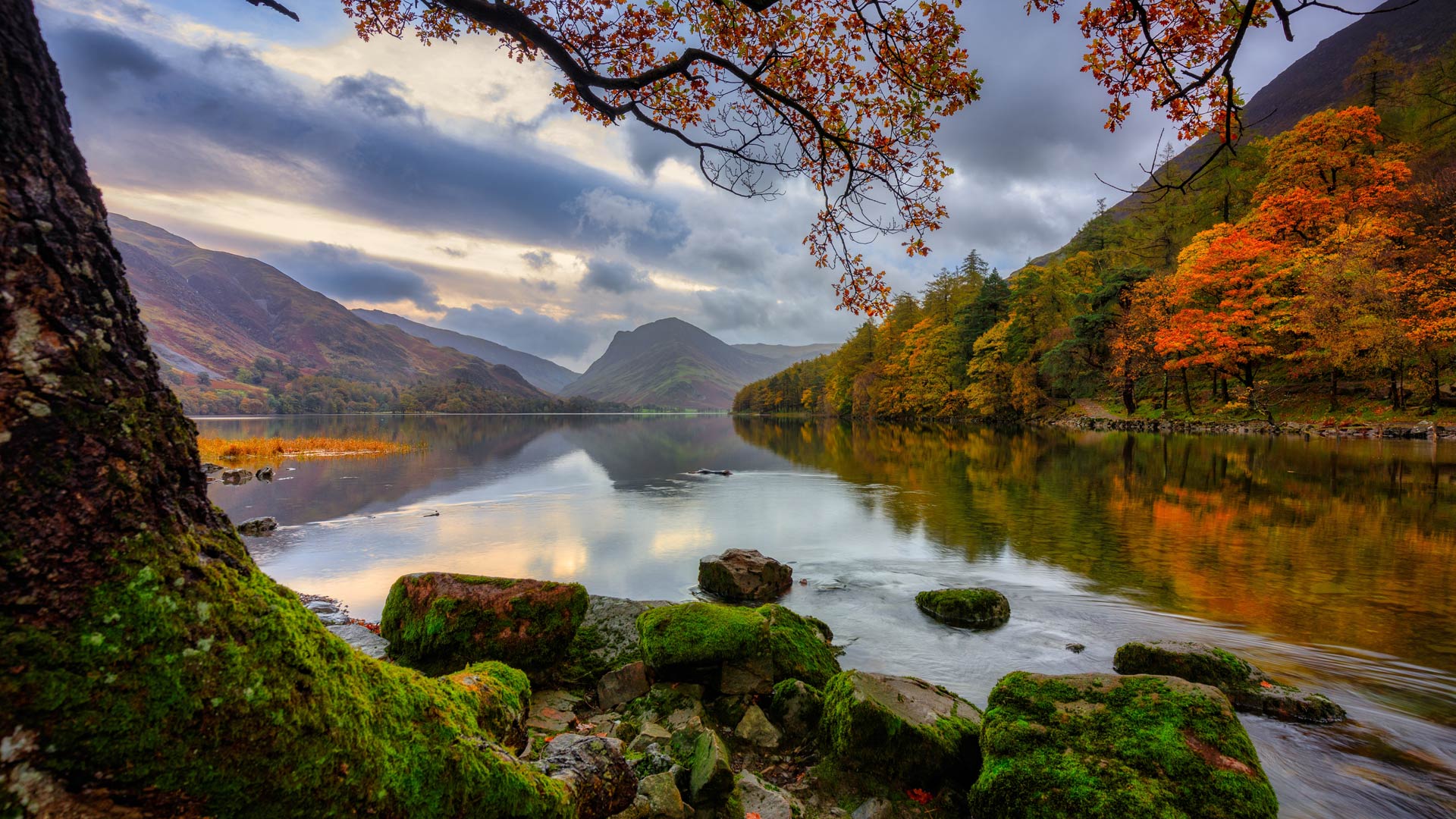
With its picturesque landscapes, tranquil lakes, and winding trails, the Lake District is one of the best regions in the UK for geocaching. Whether you're following a lakeside path or venturing into the hills, you'll find an array of hidden geocaches waiting to be discovered in this UNESCO World Heritage Site.
Here are some of the brilliant campsites in the Lake District that make the perfect base for your geocaching adventure:
- Bowness-on-Windermere Club Site is just a short walk from England’s largest lake. This campsite offers fantastic access to scenic lakeside trails and a number of nearby caches. It’s perfect for relaxed adventures with family or friends, with plenty of spots to picnic along the way.
- Braithwaite Village Club Site is nestled between Derwentwater and Bassenthwaite Lake. This peaceful campsite is surrounded by forested hills and offers walking routes that are packed with geocaching opportunities. The nearby Whinlatter Forest is a geocacher’s paradise.
- Derwentwater Club Site is set in the heart of the northern Lake District and gives you easy access to mountainous terrain and stunning views. Ideal for more adventurous geocachers, you'll find a mix of challenging trails and hidden gems around every corner.
Other geocaching hotspots in the UK
Benefits of geocaching
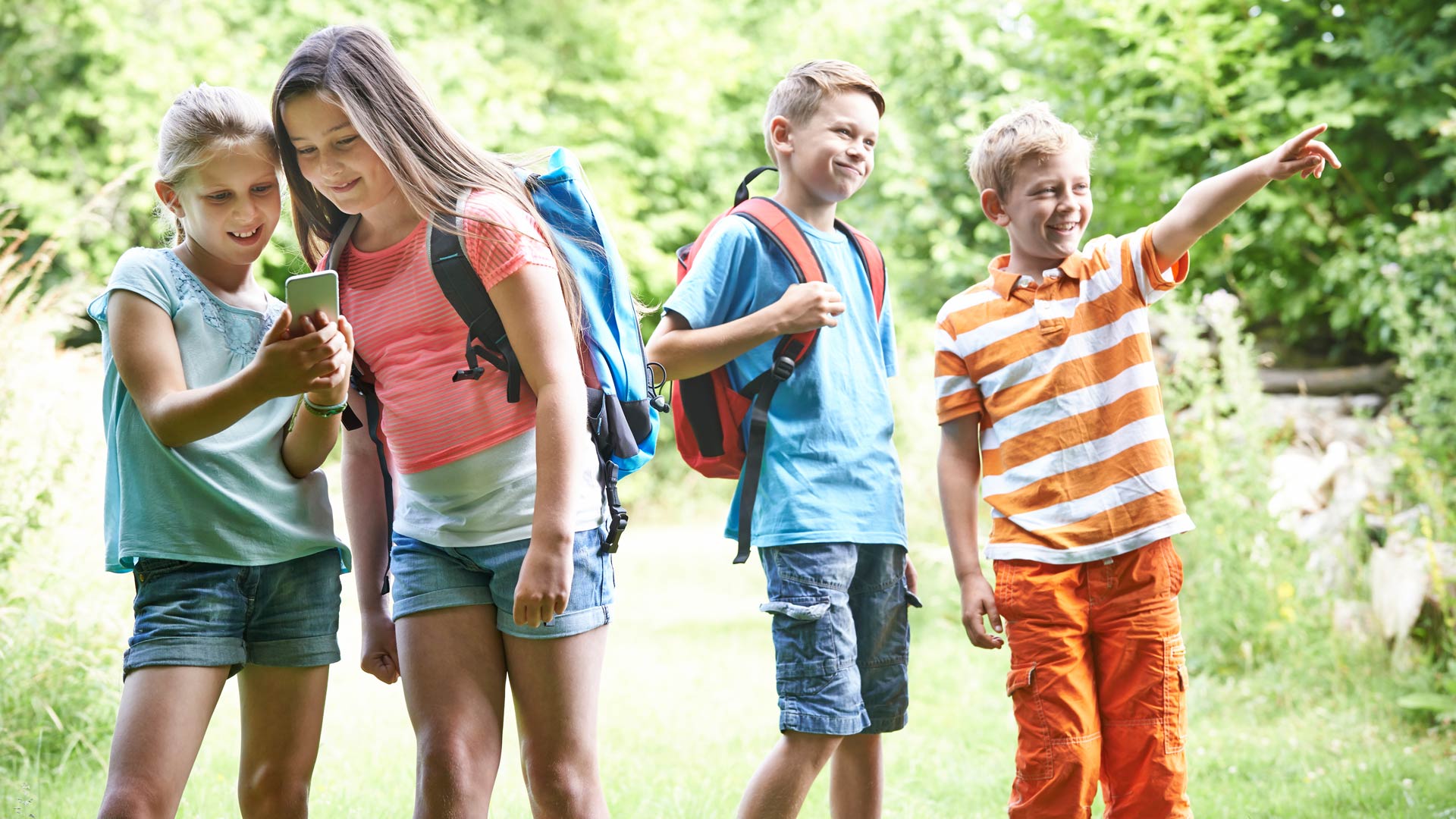
Geocaching has something for everyone. It's great for your health and wellbeing, for exploring the incredible outdoors, and it’s positive for the environment.
Physical
As you try your best to negotiate over the wonderful (and sometimes challenging) landscape of the UK, you'll be racking up your step count. Even short walks between caches can add up to your daily activity goals. Geocaching gets you moving, often without even noticing.
Educational
Children and adults alike can learn more about local plants, wildlife, history, and geography while exploring new terrain. It’s a great way to minimise technology usage and maximise time spent in the beautiful outdoors.
Exploration
When you’re on holiday and want to make the most of your surroundings, geocaching is a great way to get out and explore local areas. You’ll get to see parts of the UK which you wouldn’t have necessarily considered before. Best of all, many people often hide caches in areas with a historical background or beautiful hidden gems, so you can stumble upon magical landscapes as you take on geocaching in the UK.
Character building
Geocaching builds on lots of personal traits such as teamwork and leadership skills. Perhaps the most useful skill which geocaching requires is perseverance. It can take a long afternoon, or even longer, to discover caches. Some might be hidden really well, and others might have you wondering if you’re walking around in circles. You must stick to it!
Environmental
It’s lovely to have a nice environment to explore. It's also a good idea to leave it in the same condition for everyone who visits after you. Geocaching teaches everyone to care for nature. Bring a small rubbish bag with you on your walk and pick up any litter as you go along. This way you’ll feel great about helping the earth too.
Geocache difficulty levels explained
![]()
Easy: The geocaches are openly visible and will only take a few minutes of searching.
Average: The average experienced geocacher will be able to find it in less than 30 minutes.
Challenging: This will be a challenge for an experienced geocacher. It could take the best part of an afternoon to find it.
Difficult: These provide a real challenge for experienced geocachers. Thorough preparation is required, and it could take several days and attempts to raise the treasure.
Extreme: This is a serious challenge. Special knowledge, skills and equipment are necessary to raise the cache.
Geocache terrain levels explained
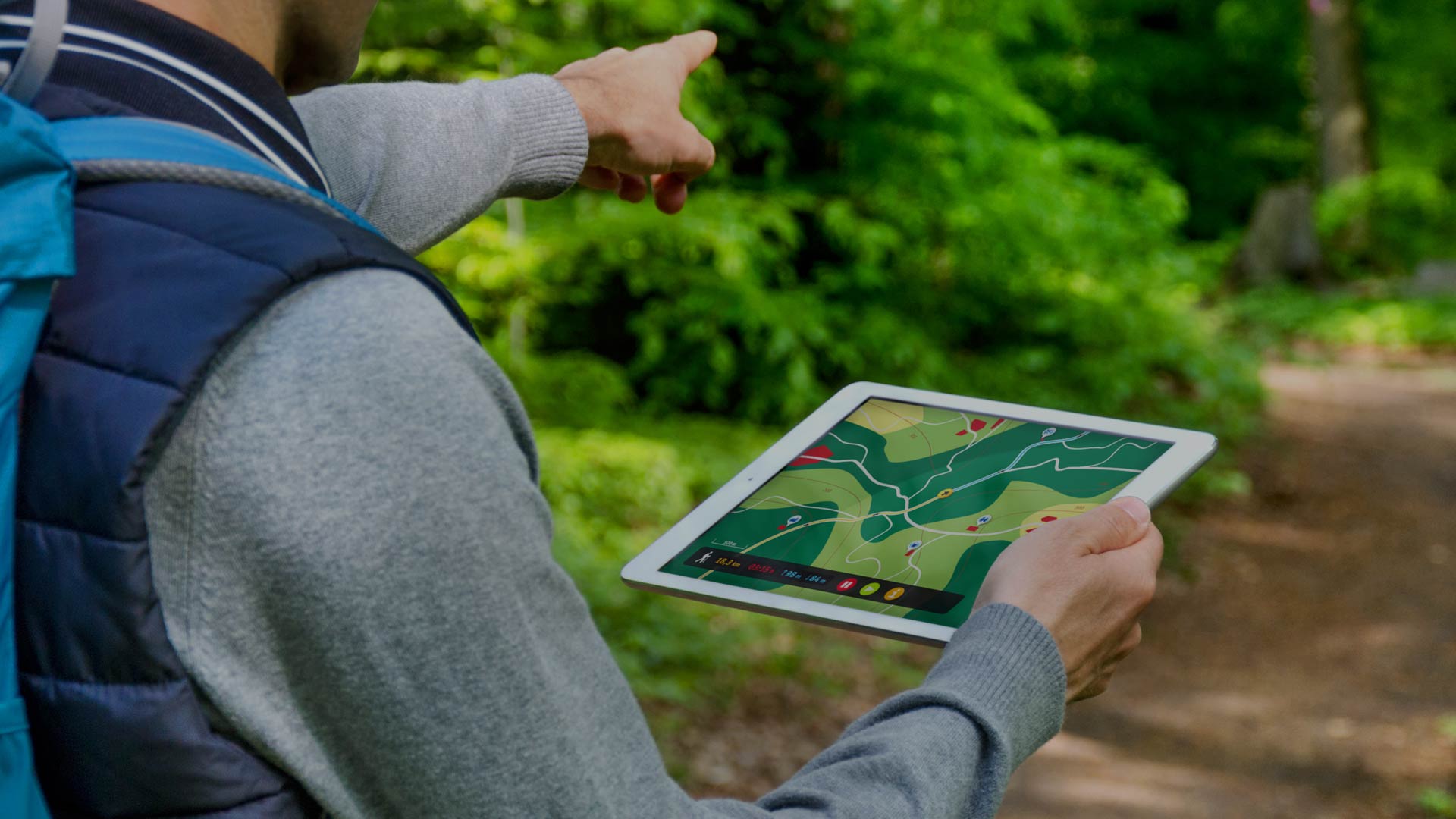
Wheelchair and pushchair friendly: These routes are on well-developed paths, usually under 1km in distance. Ideal for families with young children or those needing accessible options.
Child-friendly: These are mostly flat, marked routes with no overgrown sections. Total distance is typically no more than 3 km, making them perfect for younger children and beginners.
Moderate: Not generally suitable for small children, these routes may include uneven or slightly rough terrain. Most adults and older children will be able to navigate them comfortably.
Advanced: Expect steep, overgrown, or rugged trails. These are ideal for experienced walkers who are up for a physical challenge.
Expert: These are serious adventures that require specialist equipment, such as a boat, four-wheel drive, or climbing gear. Best suited for highly experienced geocachers and outdoor professionals.
What you need for geocaching in the UK
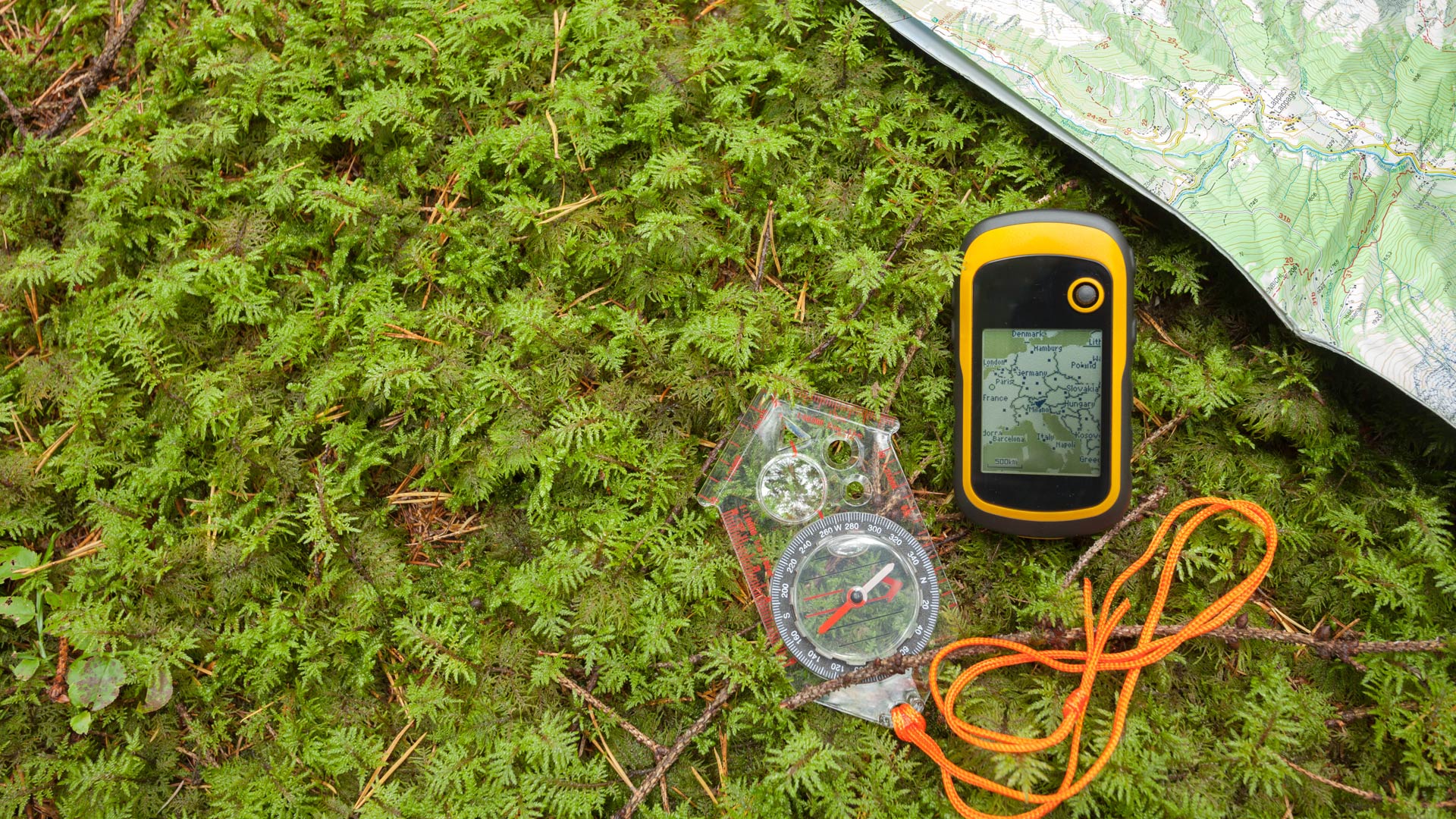
Geocaching doesn’t require a lot of equipment, and it won’t cost you a fortune to get started. Here’s what you’ll need before heading out on your first cache hunt.
Essential geocaching gear
- Smartphone with a geocaching app OR a GPS receiver
- Look for a receiver with 12 or more channels. Most modern models have this, but older units (pre-1997) may have only one channel and are slower and less accurate.
- A unit with an external antenna improves signal reception in dense forests or inside vehicles.
- Opt for a waterproof model as they’re more durable and reliable in bad weather.
- Power supply
- Weather-appropriate clothing
- Comfortable walking shoes
Your main piece of equipment will be either a smartphone with a geocaching app or a handheld GPS receiver (starting at around £50). When choosing a GPS device, keep these key points in mind:
Geocaching trips can last longer than expected, so it’s important to stay powered up. Bring spare batteries for your GPS or torch, and a fully charged power bank if you’re using a smartphone.
It’s no surprise that the UK weather is wildly unpredictable. Before you head out on your geocaching adventure, check the weather, but be prepared for both sun and rain. Dress in layers and bring waterproofs to stay comfortable and dry.
The last thing you want is for your feet to hurt whilst you’re on the hunt. Make sure to wear comfortable walking boots to avoid blisters, soggy socks, or slips. Here is a great guide on the best walking boots.
Optional geocaching gear
- Torch or headlamp (with spare batteries) – especially for low-light or night caches
- Camera – to capture your adventure
- Pen or pencil – for signing logbooks (pencils work better in cold/wet conditions)
- Retractable mirror – for checking tricky hiding spots
- Gloves – useful for reaching into tight or muddy spaces
- Snacks and water – you’ll need to stay hydrated throughout your trek, and for longer walks, carry some nutritional snacks
- Mini first aid kit – include bandages, plasters, antiseptic wipes
Remember to trade!
If you're planning to leave an item in the cache for the next adventurer to find, remember to pack something small and meaningful. Always trade equal or greater value.
Geocaching terms explained
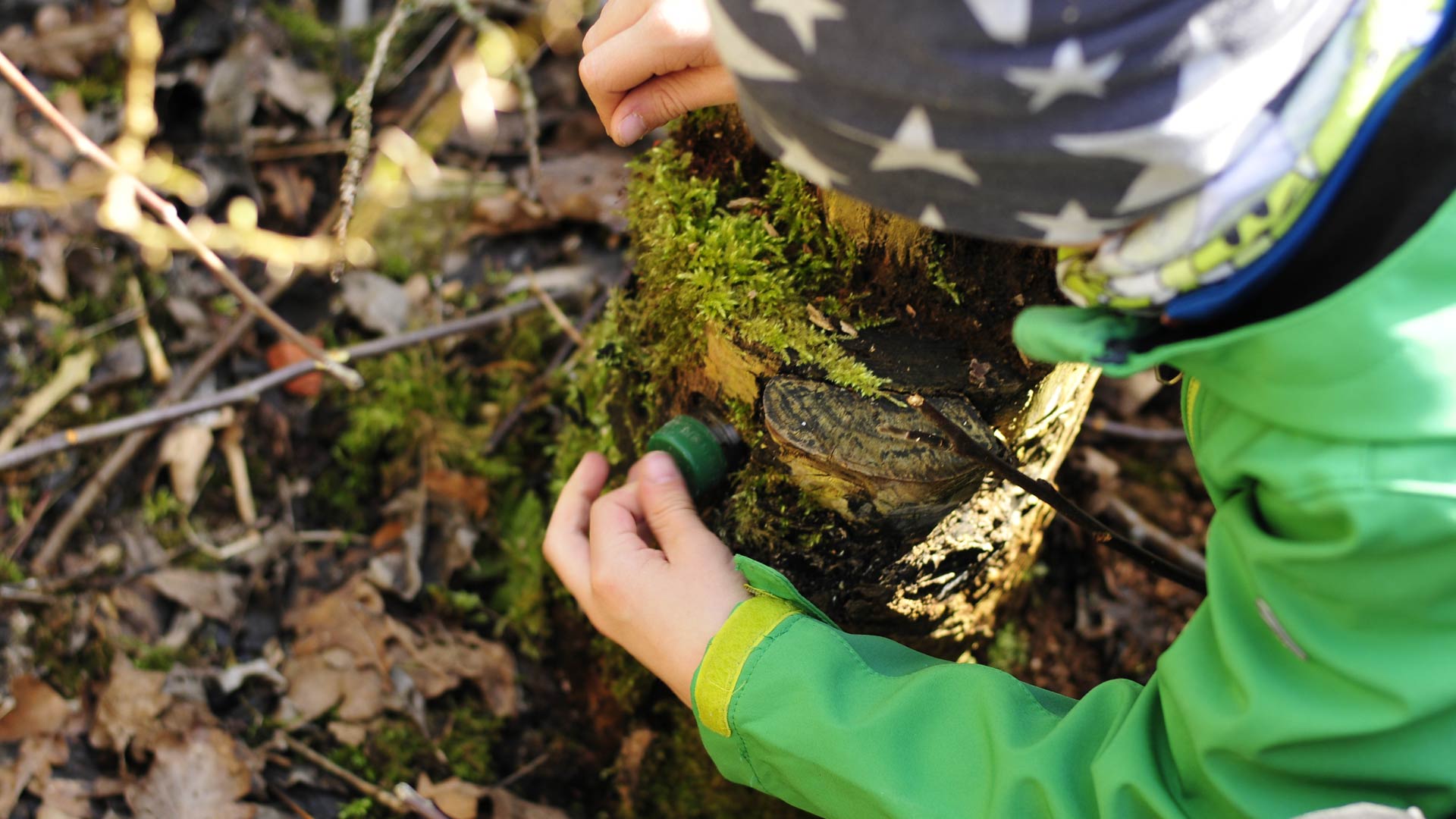
When you start your geocaching adventures, you might come across some of the following terms and abbreviations used online. Use this dictionary to decipher your fellow treasure hunter’s messages.
- DNF: Did not find
- Drive/dump: A cache placed next to a road or car park with little thought
- FTF: First to find
- Geo-muggles/muggles: Those unfamiliar with geocaching
- Giga-event: An event surrounding a cache that’s attended by 5,000+ people
- Log & dump: A carelessly placed cache, left unhidden in its original location
- Muggled/plundered: When a geocache is vandalised or stolen
- Plasma bandits: Mosquitoes
- Smurfs 292: Meeting another geocacher in the woods
- TNLN: Took nothing, left nothing
- TNLNSL: Took nothing, left nothing, signed logbook
Geocache variations
- Drive-bys/park n grabs: Great geocaches for beginners.
- Letterbox: A cache with a rubber stamp and a logbook instead of a standard paper logbook
- Moving/travelling: The finder uses the logbook, trades trinkets, and then hides the cache in a different location. By updating this new location on the listing, the finder becomes the hider, and the next finder continues the cycle.
- Multi-cache: One or more intermediate checkpoints which contain the coordinates of the next checkpoint. The final point will contain the logbook.
- Mystery/puzzle: Solve a puzzle or discover information to find the cache. This could be a padlock combination or solving a riddle to find a location name.
- Night cache: Designed to be found at night, usually with several reflectors. You’ll need a torch to find the final cache.
Are you planning a geocaching trip near our campsites? Send us your adventure by tagging us on Instagram or Facebook.
